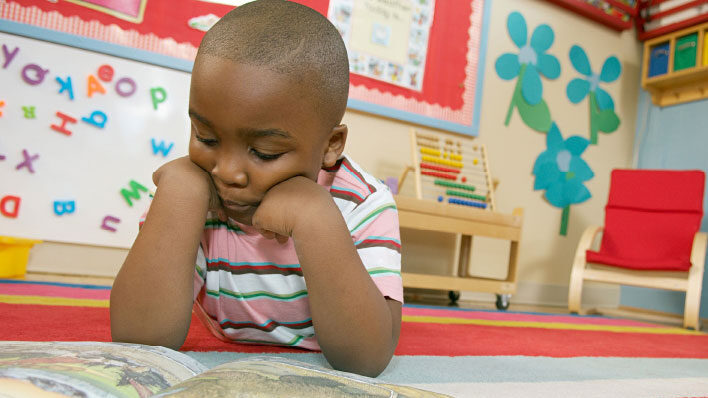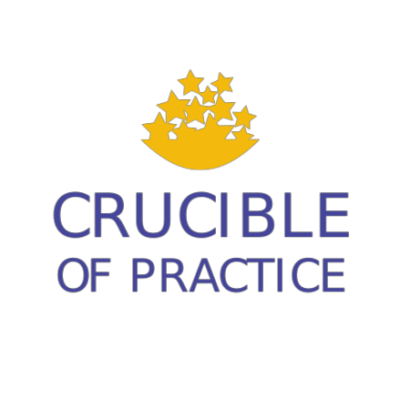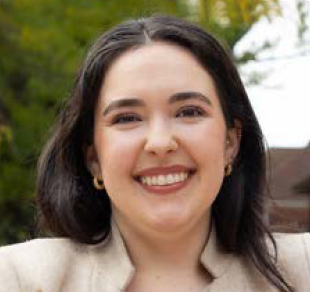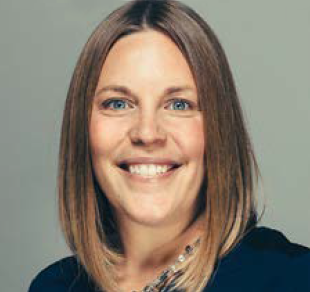
12:30 - 02:00 pm
#BetterTogether: A Collective Impact Coalition’s Journey for Literacy Equity in Detroit

“One of the things that all organizations need to be mindful of is, do they, in fact, have people who’ve ever experienced what real collaboration looks like? What does that look like at the community or cross-systems level? What is this thing called collaboration? Because collaboration is built on the spirit of cooperation.”
– Jametta Lilly
This session reviewed the application of the collective impact model by sharing the story of 313Reads and taking a deeper dive in breakout room conversations with attendees. The meeting opened with a land acknowledgment for the area in Detroit and the lands of the Odawa, Ojibwa, Potawatomi and Fox tribes to set the intention for continuous learning. Following the land acknowledgment, the icebreaker question encouraged attendees to share resources or books that have been helpful for understanding the various perspectives and stories from people who have been silenced or marginalized. The list shared can be found with the resources toward the end of this summary.
“The check-in question is important because we know there are more books out there that we can show and teach our youth about so they can see themselves in these spaces.” – Alejandra Gomez
Collective impact, as defined by the Collective Impact Forum is: “A network of community members, organizations and institutions who advance equity by learning together, aligning and integrating their actions to achieve population and systems level change.” The five essential conditions of collective impact include: 1) a common agenda, 2) shared measures, 3) mutually reinforcing activities, 4) continuous communication and 5) a backbone organization. Summarizing the definition and these five conditions established a foundation for the rest of the session.
“We’ve worked really hard over the last three and a half years to center literacy as a civil and human right. Literacy is about equity, justice and liberation.”
– Leah van Belle, Ph.D.
Leah van Belle with 313Reads set the context of what drives their coalition by describing the conditions that have held inequities in literacy in place, specifically for marginalized populations within the community. This framed how the coalition approaches the work as a whole and seeks to establish equity and access for literacy as a civil and human right. 313Reads uses the collective impact model to align and organize their efforts at scale. The structure of the coalition includes an advisory board composed of program partners, funders and systems-level members; a backbone team; and work groups dedicated to specific areas. Andrea Meyer with Center for Success and Alejandra Gomez with Urban Neighborhood Initiatives described the essential changes that happened for the coalition as they reevaluated their structure and approach.
“This work has to be embedded and entrenched in the efforts of the organizations that are partnering. They may have a piece of it rather than the whole big picture. But we want to make sure that we’re not asking folks to pivot and do something different. We want to lean into what they’re already doing and build up the skill set and the understandings of their team or access to resources.” – Andrea Meyer
“Moving at the speed of trust is also ensuring and knowing that trust does take time, and this must be balanced with the work that needs to happen yesterday and as soon as possible.” – Alejandra Gomez
The team found a call to action to “live” the work as a collective impact initiative, and this influenced the realignment of the vision, mission and strategic plan for the coalition. The charter, governance and relationship management of partners and work groups also reformed to intentionally embed more distributed leadership and shared ownership among collaborative members. Meyer and Gomez also described proof points of these changes as evidenced by key community-wide events and the growth of programs that yielded positive results. Jametta Lilly from the Detroit Parent Network reviewed the current challenges, how the team is addressing these and the next steps that frame the work for the coming year. Leah van Belle concluded with the growth and upcoming changes the team members are most excited about as they look ahead to 2024.
“To do collective impact work, you have to be in it for the long haul. The long haul isn’t a two-year, three-year, or even a four- or five-year grant. It means that not only do we need people to come together who are mission focused and understand that we have a commitment,we also need partners who are a part of the work, because the collective impact entity is only one part of the iceberg. It needs to also have other organizations working to leverage their own funds, to give life into the kinds of activities and strategies that the coalition can lead.” – Jametta Lilly
Attendees were then invited to join breakout rooms for an exchange of ideas about challenges and approaches from the perspective of program partners or steering committee members. The session ended with participants coming back together as a large group and sharing a few key takeaways. The CGLR communities recognized with Pacesetter Honors, as Bright Spots and as having “Exceptional” submissions in the Communications Expo were also shared at the end of the meeting.


 All Events
All Events



